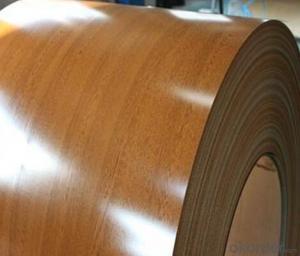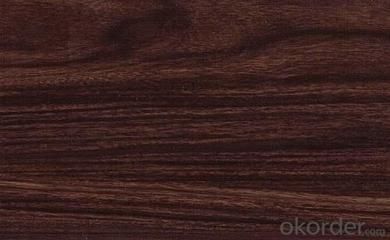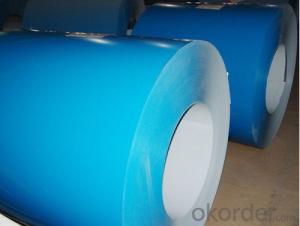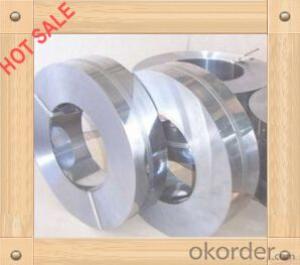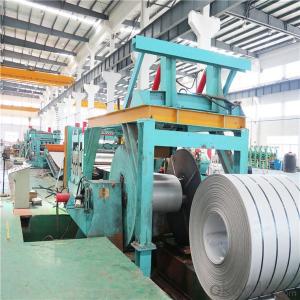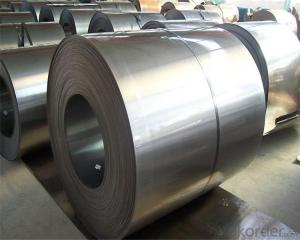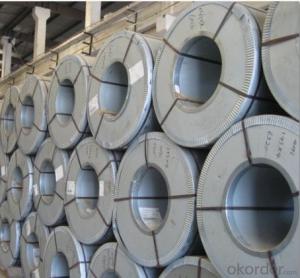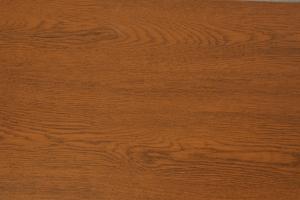Printing plat
- Loading Port:
- China Main Port
- Payment Terms:
- TT OR LC
- Min Order Qty:
- -
- Supply Capability:
- -
OKorder Service Pledge
OKorder Financial Service
You Might Also Like
Technical
Specification Clear step on gray scale 3rd step, clear
Dot reproduction(%) 2-98%
Micro-line(impression) 6-12
Pressrun(impression) ≥50,000
Storage condition Temp:10-30℃, RH:Rh≤65%,
2years
Recommended
Processing
Conditions Dilution ratio GD-II : water=1:4(machine)
1:6(hand)
EXPLOSURE(UNIT) 35-50
Developing Temp(℃) 21-25
LIGHT SOURCE 3000W (LODINE GALLIUM LIGHT:100-120 SECONDS)
1METER(FOR DISTANCE)
Developing Time(S) 30-45
Contamination removal Retouching paste: 40s
Retouching solution: 10s
Gumming A even, thin coating, 20ml/㎡
Baking Normally unnecessary, if need
Oven-type: 240℃,4-5mins
Moving-type: 260℃,3-4mins
- Q: i need this for school and i need to know what are some advantages of stainless steel.
- It is great for knives because it stays chromed looking without rust. The steel is very hard so holds an edge for a long time. If it contains enough nickel it also is not magnetic, which some applications need this trait It is used for exhaust pipes in good cars, because it doesn't corrode from exhaust like common steel will, so the exhaust pipes last very long. Stainless is used for sinks, ovens, and kitchen appliances because it holds a shine, is very durable , doesn't crack or get burn holes like plastic would. It doesn't rust and is easy to clean and has a good color. It is used on exterior building panels for the same reason , plus it adds the same structural strength as regular steel without the maintenance of painting and rust removal. It is great for pans because you can scrub it without scraping it and it conducts heat well and cleans easily because the surface is smooth and hard So it has the same advantages of strength and fabrication as regular steel, without the downside of rust and ugliness. More cost (it contains chromium and nickel which are expensive) and harder to weld is two of it's shortcomings
- Q: How much does a steel coil weigh?
- The weight of a steel coil can vary depending on its dimensions and thickness. However, on average, a steel coil can weigh anywhere between 2 to 20 tons.
- Q: How are steel coils used in the production of metal containers?
- Steel coils are used in the production of metal containers by being processed and formed into sheets, which are then shaped and welded to create the body and lids of the containers. The strength and durability of steel make it an ideal material for these containers, providing protection for goods during transportation and storage.
- Q: I'm looking for the weight of different types of steel and haven't found anything helpful!!thank you
- of course you couldn't find it, the weigh depends on the size of the piece. What you are looking for, I think, is density. Below are a few tables, there are lots more. .
- Q: What are the different types of coatings applied to steel coils?
- Steel coils can be coated with a variety of coatings, each serving a specific purpose and offering unique advantages. 1. Galvanized Coating: Among the most frequently used coatings for steel coils is the galvanized coating, which entails the application of a layer of zinc to the steel surface. Galvanized coatings offer exceptional corrosion resistance, making them ideal for outdoor applications where the steel may come into contact with moisture or harsh environmental conditions. 2. Galvalume Coating: Similar to galvanized coating, galvalume coating also involves the application of a zinc layer to the steel surface. However, it incorporates a small amount of aluminum as well. This addition enhances the coating's corrosion resistance and improves heat reflectivity. Galvalume coatings are commonly employed in roofing and cladding applications. 3. Pre-painted Coating: Pre-painted coatings encompass the application of a layer of paint or primer to the steel surface. This type of coating allows for customization in terms of color and finish. Pre-painted coatings not only enhance the steel's aesthetic appeal but also provide added protection against corrosion and weathering. 4. Organic Coating: Organic coatings are typically applied as a topcoat over galvanized or galvalume coatings. They are composed of various resins, such as polyester, epoxy, or polyurethane, which offer additional protection against corrosion, abrasion, and chemicals. Organic coatings are frequently utilized in industries that prioritize both durability and aesthetics, such as the automotive sector. 5. Metallic Coating: Metallic coatings, such as aluminum or zinc, are applied to steel coils using the hot-dip coating process. These coatings deliver exceptional corrosion resistance and are commonly used in applications where the steel is exposed to high temperatures or corrosive environments. 6. Chromate Conversion Coating: Chromate conversion coatings are primarily applied to steel coils for their corrosion resistance properties. They are frequently employed in electrical applications to safeguard against galvanic corrosion and enhance conductivity. Ultimately, the choice of coating for steel coils is contingent upon specific application requirements, including the desired level of corrosion resistance, aesthetic considerations, and environmental factors.
- Q: How are steel coils used in the manufacturing of food packaging?
- Steel coils are commonly used in the manufacturing of food packaging as they provide strength and durability to the packaging materials. These coils are typically shaped into cans, containers, or lids, ensuring the preservation and protection of food products during storage and transportation. Steel coils help maintain the integrity of the packaging, preventing breakage or damage that could compromise the safety and quality of the food.
- Q: How are steel coils inspected for surface defects?
- Steel coils are inspected for surface defects using various techniques such as visual inspection, automated systems, and magnetic particle inspection. Visual inspection involves trained personnel examining the coils for any visible defects or irregularities. Automated systems utilize cameras and sensors to detect defects and anomalies on the coil surfaces. Magnetic particle inspection, on the other hand, involves magnetizing the coil and applying magnetic particles to reveal any surface defects through the formation of visible indications. These methods ensure that steel coils meet quality standards before further processing or shipment.
- Q: I saw a 27 sedan and a 27 Pick-up one had wood wheels the other steel, respectively. Witch one was original or were they both original
- Wooden Spoke Wheels
- Q: What are the different types of steel coil cutting machines?
- There are several different types of steel coil cutting machines available in the market, each designed to cater to specific needs and requirements. Some of the commonly used types include: 1. Slitting Machines: Slitting machines are used to cut steel coils into narrower strips. They have multiple circular blades that make precise cuts along the length of the coil, allowing for the production of narrower coils or strips. 2. Cut-to-Length Machines: Cut-to-length machines are designed to cut steel coils into specific lengths. These machines can accurately measure and cut the coil to the desired length, ensuring uniformity and precision. 3. Rotary Shears: Rotary shears are heavy-duty cutting machines that can handle thicker and larger steel coils. They use a rotating blade to cut through the coil, making it suitable for cutting thicker gauge materials. 4. Multi-Blanking Machines: Multi-blanking machines are designed to cut steel coils into multiple smaller blanks simultaneously. These machines can cut the coil into various shapes and sizes, making them ideal for producing multiple parts from a single coil. 5. Slit and Cut-to-Length Combination Machines: These machines combine the functionalities of slitting and cut-to-length machines, allowing for both narrow strip cutting and length cutting in a single process. They are versatile and efficient, saving time and increasing productivity. Each type of steel coil cutting machine has its own advantages and is suitable for specific applications. The choice of machine depends on factors such as coil thickness, desired strip width, required length accuracy, and production volume.
- Q: Well actually I was just wondering why people were bashing on stainless so much for katanas. I heard that they don't hold their edge as well as carbon steel blades or Damascus steel. So what makes it so inferior to carbon or other types of steels?
- No real swords are made of stainless steel. Its is simply a poor material for swords. Only kitchen knives that are required to be easy to clean and corrosion resistant are made of stainless. Adding chromium and other trace elements adds nothing to the ability to cut well or hold an edge. It is not strong enough to withstand the forces involved, being too brittle and lacking in toughness. Those decorative swords are not really swords at all.... rather they are sword shaped objects.
Send your message to us
Printing plat
- Loading Port:
- China Main Port
- Payment Terms:
- TT OR LC
- Min Order Qty:
- -
- Supply Capability:
- -
OKorder Service Pledge
OKorder Financial Service
Similar products
Hot products
Hot Searches
Related keywords
